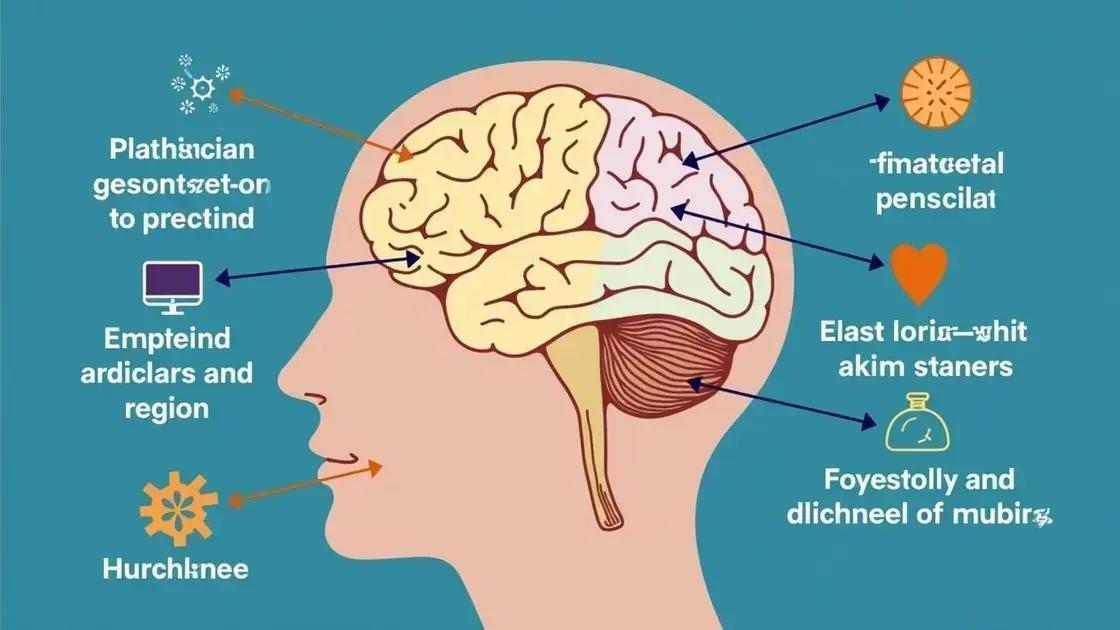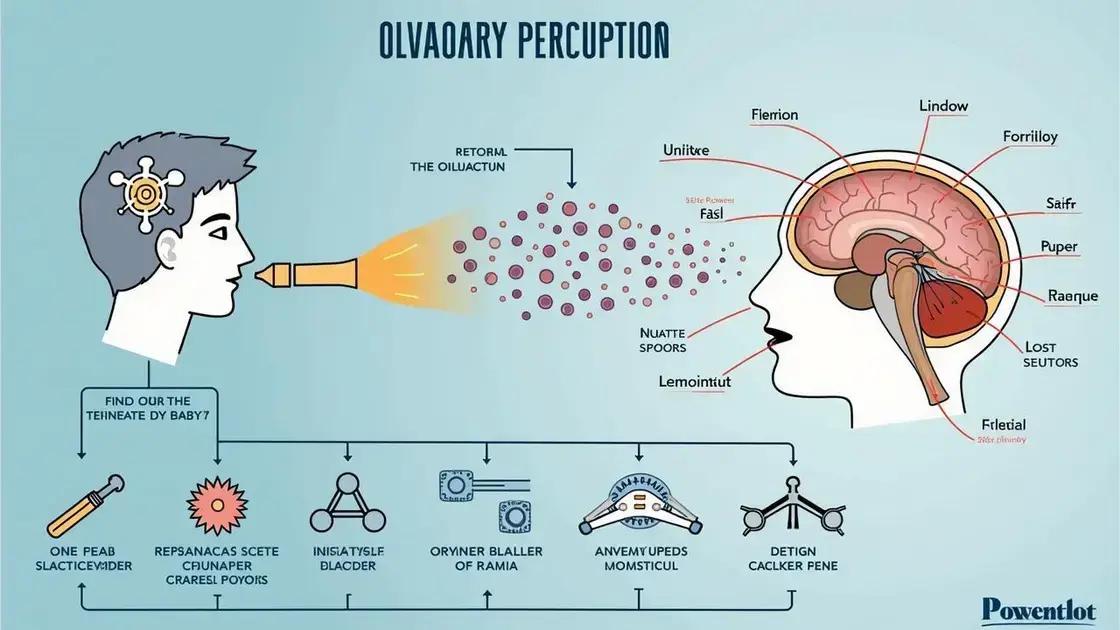The smell trick refers to the brain’s ability to interpret and respond to odors, significantly impacting emotions and memories. Smell is processed in the brain’s olfactory bulb and limbic system, influencing behaviors and experiences. Practical applications include scent marketing, aromatherapy, and creating inviting home and work environments to improve mood and well-being.
Have you ever wondered how your body interprets smells around you? How does the smell trick work in the body? This fascinating phenomenon involves complex mechanisms that allow us to recognize and react to different scents. In this article, we’ll delve into the science of olfactory perception, explore how smells can influence your emotions, and discuss real-life applications of this remarkable ability. Let’s uncover the secrets of our sense of smell!
Understanding the Smell Trick

The smell trick refers to how our brains process scents we encounter throughout our lives. This ability is crucial for survival and can influence our behavior, memories, and emotions.
How Smells Impact Our Perception
When you smell something, the olfactory receptors in your nose send signals to your brain. These signals are processed in the olfactory bulb and then sent to various regions of the brain, including the limbic system, which is associated with emotions and memory. This connection explains why certain smells can evoke strong feelings or remind us of specific moments in our lives.
Examples of the Smell Trick in Action
For instance, the smell of fresh cookies might take you back to your grandmother’s kitchen. Similarly, the scent of a particular flower may remind you of a loved one. This connection between scent and memory illustrates the power of the smell trick.
Why Understanding the Smell Trick Matters
Understanding the smell trick can help us harness the power of scent in our daily lives. From marketing strategies that use fragrance to create a positive shopping experience to therapy techniques that utilize smells for emotional healing, the applications are vast. Recognizing how scents affect us can lead to better choices in both personal and professional realms.
The Science of Olfactory Perception

The science of olfactory perception involves the way our body detects and interprets smells. When we inhale, odor molecules enter our nose and bind to olfactory receptors. These receptors are specialized proteins that send signals to the brain, allowing us to identify and react to different scents.
The Role of the Olfactory Bulb
After binding to receptors, the signals travel to the olfactory bulb, located at the base of the brain. This area processes smell information and is responsible for discriminating between various scents. The odor signals are then forwarded to higher brain regions for further analysis and integration with memories and emotions.
Types of Olfactory Receptors
There are over 400 distinct olfactory receptor types within the human nose. Each receptor type is sensitive to a specific range of odor molecules. This diversity allows us to detect a vast array of smells, ranging from pleasant fragrances to foul odors. The unique combination of active receptors at any given time shapes our overall smell experience.
Factors Influencing Smell Perception
Several factors can affect how we perceive smells. These include genetics, age, and even health. For example, as people age, their sense of smell tends to decline, which can affect taste and overall quality of life. Additionally, certain medical conditions, such as sinus infections, can alter olfactory sensitivity.
Impact of Smell on Emotions

Smell has a powerful influence on our emotions. The connection between our sense of smell and feelings is deeply rooted in our brain’s structure. When we inhale a scent, it travels to the olfactory bulb, which is closely linked to the limbic system, the area responsible for emotions and memories.
How Smells Trigger Emotions
Certain smells can instantly trigger memories and emotions. For example, the smell of pine may evoke feelings of being in a cozy cabin during winter. This happens because the brain associates specific scents with past experiences, creating emotional responses.
The Power of Scents in Daily Life
Many people use fragrances in their daily lives to influence their moods. Aromatherapy, for instance, utilizes essential oils to promote relaxation, happiness, or even energy. Scents like lavender are known to calm anxiety, while citrus scents can uplift spirits.
Research on Smell and Emotion
Studies have shown that scents can affect our mood and social behavior. For example, pleasant smells can enhance perception of attractiveness and increase social interactions. On the other hand, unpleasant odors can lead to stress and discomfort.
Understanding the impact of smell on our emotions can help us create better environments at home and work. By incorporating specific scents, we can improve mood, productivity, and overall well-being.
Practical Applications of the Smell Trick

The smell trick can be used in various practical applications in daily life. By understanding how smells impact our emotions and decisions, we can enhance many environments.
Marketing and Business
Retailers often use scent marketing to create a welcoming atmosphere. When you walk into a store that smells fresh or baked, you’re more likely to feel comfortable and spend more time shopping. Scents can result in increased sales by altering customer behavior.
Healthcare
In healthcare settings, certain scents can promote relaxation for patients. Hospitals sometimes use lavender or chamomile scents to help reduce anxiety and create a calmer environment. This can significantly improve a patient’s experience while receiving treatment.
Aromatherapy
Aromatherapy is an effective practice where essential oils are used to influence emotions and promote wellness. For instance, peppermint oil can improve focus, while eucalyptus may aid in breathing. This method shows how smells can be harnessed for physical and emotional benefits.
Home Environment
At home, incorporating pleasant scents can enhance mood and create a cozy atmosphere. Using scented candles or diffusers with essential oils can help make spaces feel more inviting. Additionally, the scent of citrus can help boost energy and motivation.
Understanding the Power of Smell in Our Lives
The research into how smell affects our emotions and behaviors highlights its significant role in our daily experiences. The smell trick is not just a fascinating phenomenon but a powerful tool that can enhance marketing strategies, improve healthcare environments, and create inviting atmospheres at home.
With the right application of scents, we can harness their ability to influence emotions, boost productivity, and promote well-being. From utilizing fragrant oils in aromatherapy to implementing scent marketing in retail, there are countless ways to integrate the science of olfactory perception into various aspects of life.
Ultimately, recognizing the impact of smell can lead to a more enriched and mindful experience, whether at home, work, or in social settings. Embrace the potential of scents to transform your surroundings and elevate your emotional landscape.
FAQ – Frequently Asked Questions about the Smell Trick
What is the smell trick?
The smell trick refers to how our brains interpret and react to different scents, influencing our emotions and memories.
How does smell affect our emotions?
Scents can trigger emotional responses by activating areas of the brain linked to memories and feelings, such as the limbic system.
Can scents be used in marketing?
Yes, many retailers use scent marketing to create a pleasant shopping environment, encouraging customers to stay longer and make purchases.
What are some practical applications of the smell trick?
The smell trick can be used in aromatherapy, healthcare, home environments, and marketing to enhance well-being and influence behavior.
How can I use scents at home to improve my mood?
You can use scented candles, essential oil diffusers, or fresh flowers to create an inviting atmosphere that boosts your mood and comfort.
Are there specific scents known to alleviate anxiety?
Yes, scents like lavender and chamomile are often used in aromatherapy for their calming properties and ability to reduce anxiety.













